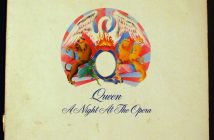If you mention ‘The Man Who Sold The World’ in my house you’ll automatically get my dad give you several reasons as to why the Nirvana cover is a lot better than the original Bowie single. This is one of few disagreements my dad and I have when it comes to music, there’s something about the original that I adore, maybe because I’m a massive David Bowie freak, but my love for the album and title track will never fade. As we reach its 50th anniversary surely it’s only appropriate we celebrate Bowie’s third studio album which acted as a foregrounding record to his career.
Surprisingly enough the album is often overlooked more so than the title track. The title track has been covered many times by multiple artists and even made an appearance at BBC Live Lounge and MTV Unplugged. It even goes as far as lending itself to Peter Doggett’s 2011 Bowie biography which critiques Bowie’s craft from his most influential and inventive decade of his career. So why is ‘The Man Who Sold The World’ such an iconic track but not so much of an album? Is it because it marks the end of an era for Bowie? The album signifies a departure from the soft-folksy sound Bowie brought to the scene in 1969 and starts the migration toward hard bluesy-rock that evidently had the longevity that spanned the entire length of his career as he quickly adapted to the wildly popular genre. Or perhaps, the lack of praise for the album is effected by the original release being such a commercial failure (obviously the people of the 70s didn’t recognise good music), it wasn’t until the 1972 remastering of the album allowed it to break-through to the charts in both the UK and US. Since then the album has been critically praised for the music’s unsettling nature and the dark ominous lyrics that conjure up ambiguous narratives.
Had this record never been remastered later on in the decade, Bowie would never have become a fully realised artist. This album was the springboard he needed to evolve and mature into his craft, bringing ethereal and mystical visual arts to the table. Curiously enough, this album rocketed into the popular sphere during the glam rock years of flamboyant and androgynous Ziggy Stardust, which could not be more different from the unpropitious style Bowie had started to explore at the time.
Of course, the love shouldn’t just be directed at the title track (even though it is quintessentially Bowie), ‘After All’ embodies the very ominous and ambiguous tones critics have highlighted with foreboding backing vocals that echo lyrics several octaves lower adding a textured kaleidoscopic vibe. The album seems to get more rambunctious as you venture through tracks, ‘She Shook Me Cold’ arrives with striking and prominent guitar riffs that bear uncanny resemblances of something expected from Hendrix, and disorientates the mind for a split second as the vocals are of Brixton born and raised Bowie, not a conceited egotistical rockstar.
Whether you associate David Bowie with Lets Dance or Hunky Dory it’s an unspoken rule that you recognise the turning points and most fundamental moments in the career of one of the most innovative, ground-breaking and influential artists to ever live. His death sent the world into mourning as his passing left a rift in the music industry leaving many artists in debt to the heroic man who acquired a god-like status.
Check out the 2015 remaster of ‘The Man Who Sold the World ‘below:




